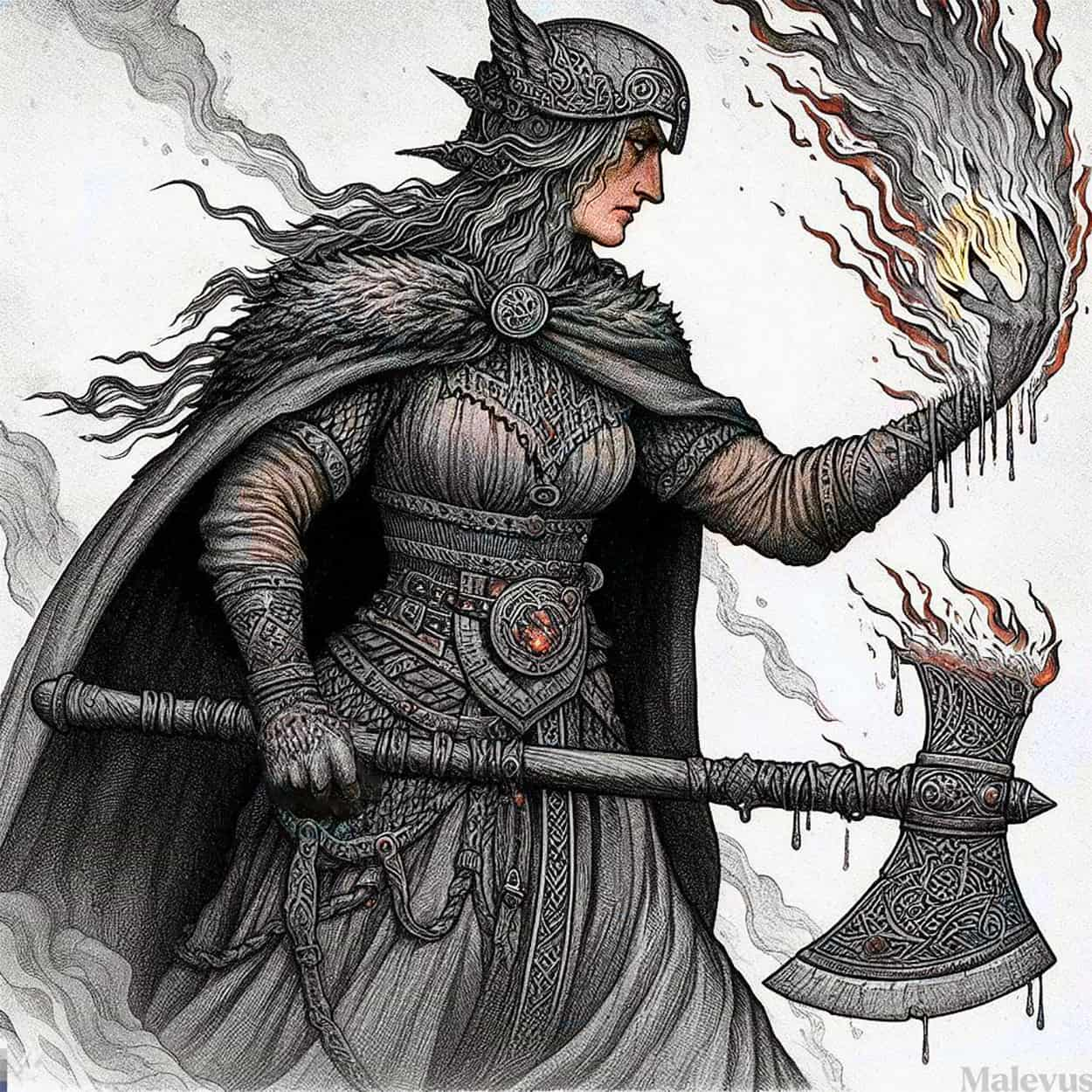Sinmara: The Fire Jötunn That Guards Lævateinn
Sinmara is a fire giantess in Norse mythology, often associated with Surtr, a powerful fire giant. She is mentioned in various Old Norse sources.

Sinmara is a fire giantess in Norse mythology, often associated with Surtr, a powerful fire giant. She is mentioned in various Old Norse sources.


